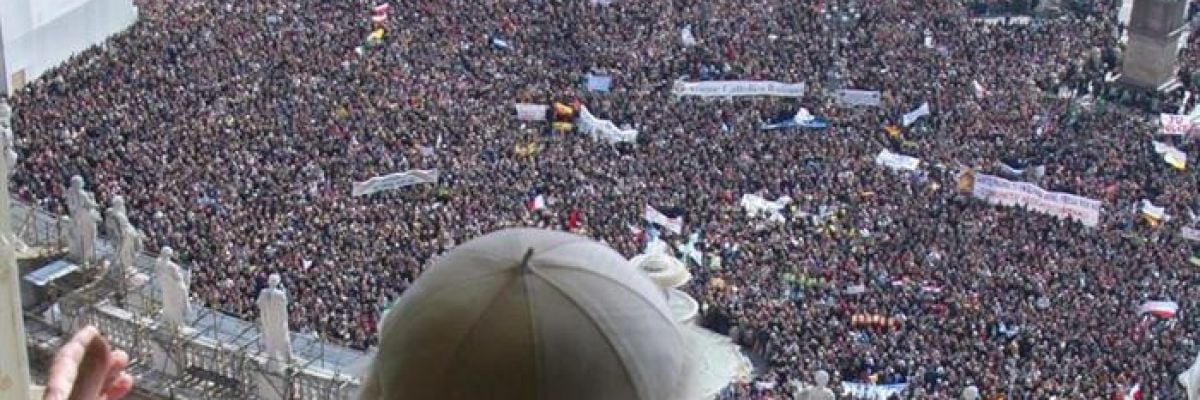
The last few weeks have been quite eventful for us Catholics. Pope Benedict XVI shocked the world by announcing that he would be stepping down as head of the 1.2 billion-member Catholic Church.
His decision has thrust the papacy and Catholicism in general into the cultural spotlight and has provoked the ire of many Fundamentalists, who have long been scandalized by the adulation Catholics pay to the man we call “Holy Father.“
The recent images of massive throngs of Catholics gathered in St. Peter’s Square to express their love and gratitude to the 85-year-old Pontiff were sure to provoke many of these Fundamentalists to assert how contrary to Scripture all of this was.
At Mass recently I heard the very Gospel passage that lies at the heart of the matter in question: Matthew 23:1-12. It contains the “gotcha” verse that many Fundamentalists are fond of quoting to Catholics:
“Call no one on earth your father; you have but one Father in heaven.”
The argument that is often put forth asserts that the Catholic practice of calling our priests “father” is unbiblical and contrary to Christ’s command. You can be sure that calling the Pope “Holy Father“ would only compound this perceived blasphemy.
What we have here is a classic example of eisegesis (reading into and imposing one’s views and biases upon a passage) as opposed to exegesis (drawing out the meaning of a passage from its full and proper context).
My intention here is not to lay out an apologetic argument on this issue. For those who are interested, I would direct you to some of our excellent online tracts and Quick Questions.
Quick Questions: How can we respond to the “call no man father” question?
Instead, what I would like to simply point out is that it seems that the problem of eisegesis is not limited to the interpretation of Scripture but is also widely applied to Catholicism in general. It is clear that there are many who approach, interpret, and understand the Catholic faith through the lens of their own presuppositions, agendas, and biases (a kind of hermeneutic of suspicion and contempt) instead of approaching it with an objectivity that sees the faith for what it is (regardless of whether you agree with it or not).
I would challenge our Fundamentalist friends and the world at large to pay close attention to Pope Benedict XVI as he gracefully, and with great humility, models for the world the very virtues espoused by Christ. He is a loving and holy father who in no way resembles the scribes and Pharisees of old, but instead reflects the countenance of the heavenly Father from whom every family in heaven and on earth is named.


